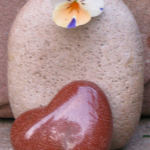One of the key concepts of EMDR is to make new brain connections, to reconnect experiences that have become split off from the rest of you, so that you can function at your optimal best.
One of its distinctive features is bilateral stimulation. This is where the eye movement comes in. Though there are many other ways to do bilateral stimulation, the most common way is for the client to move his or her eyes, following the therapist’s hand moving from side to side. Current research on neuroplasticity supports EMDR. Moving the eyes from side to side stimulates both sides of the brain. By doing this while holding a thought in mind, neural networks are actually “rewired”.
Even though EMDR is a specific method, it is woven into the course of therapy, and we don’t “just do EMDR”.
EMDR can speed up the course of therapy and bring lasting changes to long standing problems. Please feel free to contact me if you would like to know how it might help you.
Why see a therapist who is an equestrian?
As a long time horse lover and rider, I have a perspective that is rare among therapists. I understand the special relationship you have with your horse. Having a horse in your life affects your relationships, your aspirations, your finances, your body…it affects almost every aspect of your life. Whether it’s dealing with the stresses of striving for competitive goals, working to achieve harmony with your horse, coping with the loss of an equine companion, trying to get to the bottom of your relationship to your trainer, or figuring out how to get along at the barn– these are all things I can relate to.

Recent Comments